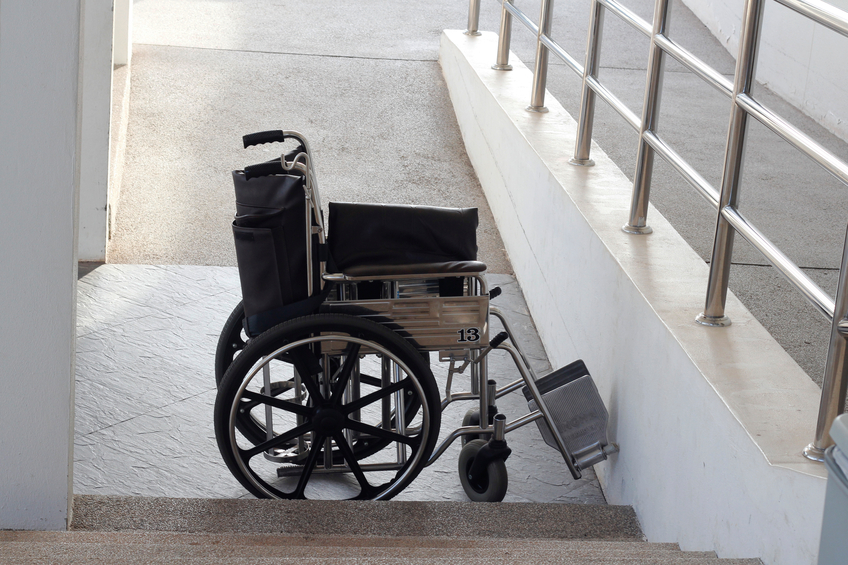Louisiana Energy Efficiency, ADA and Ethics 15 PDH Discount Package 1
Wireless Occupancy Sensors for Lighting Controls (E01-012)
Plumbing Guidelines for ADA Accessibility (M02-056)
Accessible Routes for ADA Accessibility (A02-012)
Engineering Ethics for Louisiana Professional Engineers (LA1-002)

This online engineering PDH course provides information on a wide variety of energy-related topics, ranging from simple weatherization, insulation, heating and cooling system improvements in homes, to installing and maintaining efficient water heaters, home appliances and solar panels.
Every year, a typical family in the United States spends around half of its home energy budget on heating and cooling. Unfortunately, many of those dollars are often wasted, because conditioned air escapes through leaky ceilings, walls and foundations, or flows through inadequately insulated attics, pipes, exterior walls and basements. In addition, many appliances, heating systems and air conditioners aren’t properly maintained, are old and inefficient, compared to models being sold today.
By properly maintaining your existing heating and cooling equipment (or replacing aging units with high-efficiency models), addressing weatherization and insulation issues at your house and getting into the habit of using energy efficiently all the time, you can save 10 to 30 percent (or more) on your utility bills every year. You will also help reduce pollution at utility plants that use fossil fuels to generate electricity.
This 9 PDH online course is applicable to electrical and mechanical engineers as well as energy specialists who are interested in learning more about home energy-saving considerations and the collection of systems that work together to achieve peak energy savings and to increase a home’s overall comfort.
This PE continuing education course is intended to provide you with the following specific knowledge and skills:
- Familiarizing with the major sources of air leaks and energy use in a typical home
- Learning about different sealing and insulating materials, their main characteristics and applications
- Understanding the energy saving considerations for heating and cooling systems
- Learning about a set of energy-related units, ratios and terminologies
- Learning about water heating systems and the different approaches to lowering water-heating costs
- Familiarizing with energy-efficient tips and practices for major home appliances
- Familiarizing with the building blocks of solar PV systems
- Gaining a general overview of contracts, installation, maintenance and monitoring of solar energy systems
Upon successful completion of the quiz, print your Certificate of Completion instantly. (Note: if you are paying by check or money order, you will be able to print it after we receive your payment.) For your convenience, we will also email it to you. Please note that you can log in to your account at any time to access and print your Certificate of Completion.

This online engineering PDH course provides basic information on wireless occupancy for lighting controls.
Lighting use constitutes about 20% of the total energy consumption in commercial buildings. Adding lighting controls is a simple retrofit option than can save on energy costs while helping to meet agency and federal energy savings mandates. Some energy codes and federal standards require the use of lighting controls.
Studies have shown that adding lighting controls can reduce lighting energy use 10% to 90% or more depending on the use of the space in which the sensors are installed. One study conducted on a university campus found that installing wired occupancy sensors to control lighting in more than 200 rooms in 10 buildings provided an annual cost savings of about $14,000 with a simple payback of 4.2 years.
This 1 PDH online course is applicable to electrical engineers and others interested in gaining knowledge about wireless occupancy for lighting controls for a better sustainable design.
This PE continuing education course is intended to provide you with the following specific knowledge and skills:
- Familiarizing with the different types of occupancy sensors and their characteristics including microphonic, ultrasonic, bluetooth, video image and dual technology
- Gaining a general overview of the codes and standards of lighting controls
- Learning about the types of light source to use for occupancy sensors
- Understanding how wireless sensors are powered and the best practices in using wireless sensors
- Learning about the cost considerations for wire and wireless sensors
Upon successful completion of the quiz, print your Certificate of Completion instantly. (Note: if you are paying by check or money order, you will be able to print it after we receive your payment.) For your convenience, we will also email it to you. Please note that you can log in to your account at any time to access and print your Certificate of Completion.

This online engineering PDH course focuses on the plumbing elements and facilities of the 2010 ADA standards for accessible design.
The Department of Justice published revised regulations for Titles II and III of the Americans with Disabilities Act of 1990 "ADA" in the Federal Register on September 15, 2010. These regulations adopted revised, enforceable accessibility standards called the 2010 ADA Standards for Accessible Design "2010 Standards" or "Standards". The 2010 Standards set minimum requirements – both scoping and technical – for newly designed and constructed or altered State and local government facilities, public accommodations, and commercial facilities to be readily accessible to and usable by individuals with disabilities.
This 2 PDH online course is applicable to mechanical and civil engineers, architects, construction managers and others interested in learning more about plumbing guidelines for ADA accessibility.
This PE continuing education course is intended to provide you with the following specific knowledge and skills:
- Learning about the drinking fountain ADA requirements
- Learning about the coat hooks and shelves ADA requirements
- Learning about the water closet ADA requirements
- Learning about the urinal ADA requirements
- Learning about the shower stall ADA requirements
- Learning about the washing machine and dryers ADA requirements
- Learning about the saunas and steam rooms ADA requirements
In this professional engineering CEU course, you need to review “Plumbing Guidelines for ADA Accessibility”, which is based on Chapter 6 “Plumbing Elements and Facilities” of the 2010 ADA standards for accessible design.
Upon successful completion of the quiz, print your Certificate of Completion instantly. (Note: if you are paying by check or money order, you will be able to print it after we receive your payment.) For your convenience, we will also email it to you. Please note that you can log in to your account at any time to access and print your Certificate of Completion.

This online engineering PDH course focuses on the Accessible Routes of the 2010 ADA standards for accessible design.
The Department of Justice published revised regulations for Titles II and III of the Americans with Disabilities Act of 1990 "ADA" in the Federal Register on September 15, 2010. These regulations adopted revised, enforceable accessibility standards called the 2010 ADA Standards for Accessible Design "2010 Standards" or "Standards". The 2010 Standards set minimum requirements – both scoping and technical – for newly designed and constructed or altered State and local government facilities, public accommodations, and commercial facilities to be readily accessible to and usable by individuals with disabilities.
This 2 PDH online course is applicable to all engineers, architects, construction managers and others interested in learning more about accessible routes for ADA accessibility.
This PE continuing education course is intended to provide you with the following specific knowledge and skills:
- Learning about the ADA requirements of accessible routes for walking surfaces
- Learning about the ADA requirements of accessible routes for doors, doorways and gates
- Learning about the ADA requirements of accessible routes for ramps and curb ramps
- Learning about the ADA requirements of accessible routes for elevators and elevator car
- Learning about the ADA requirements of accessible routes for platform lifts
Upon successful completion of the quiz, print your Certificate of Completion instantly. (Note: if you are paying by check or money order, you will be able to print it after we receive your payment.) For your convenience, we will also email it to you. Please note that you can log in to your account at any time to access and print your Certificate of Completion.

This online engineering PDH course presents the laws and rules of ethics and professional responsibility governing the practice of engineering in the State of Louisiana. Excerpts from Title 37, Chapter 8 of the Louisiana Revised Statutes and Title 46, Part LXI of the Louisiana Administrative Code, which relate to the laws and rules of professional conduct are presented in this course.
Engineering ethics is (1) the study of moral issues and decisions confronting individuals and organizations involved in engineering and (2) the study of related questions about moral conduct, character, ideals and relationships of peoples and organizations involved in technological development (Martin and Schinzinger, Ethics in Engineering).
Since engineers are faced with frequent moral and ethical dilemmas while practicing their engineering profession, this course will provide you with moral and ethical guidance in your decision making process. Most importantly, it will provide you with insight on how to conduct, respect and protect your engineering practice with the utmost professionalism.
This 1 PDH online course is applicable to Professional Engineers licensed in the State of Louisiana and who are required to demonstrate continuing professional competency in engineering ethics as a condition of their license renewal. For each renewal period, every licensee must complete fifteen (15) professional development hours, at least one (1) of which must be relative to professional responsibility, conduct and ethics.
This PE continuing education engineering course is intended to provide you with the following specific knowledge and skills:
- Familiarizing with the laws and rules regulating the practice of engineering in the State of Louisiana
- Understanding the roles of the Louisiana Board and its disciplinary authority
- Understanding the Louisiana Board disciplinary process
- Learning about engineering ethics and the laws and rules of professional conduct and responsibility
- Reviewing ethical and disciplinary case studies and their corresponding penalties
Upon successful completion of the quiz, print your Certificate of Completion instantly. (Note: if you are paying by check or money order, you will be able to print it after we receive your payment.) For your convenience, we will also email it to you. Please note that you can log in to your account at any time to access and print your Certificate of Completion.